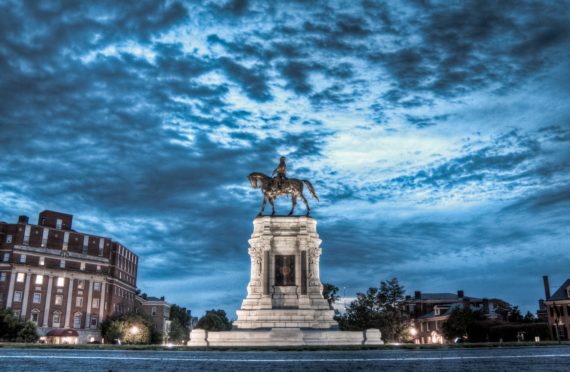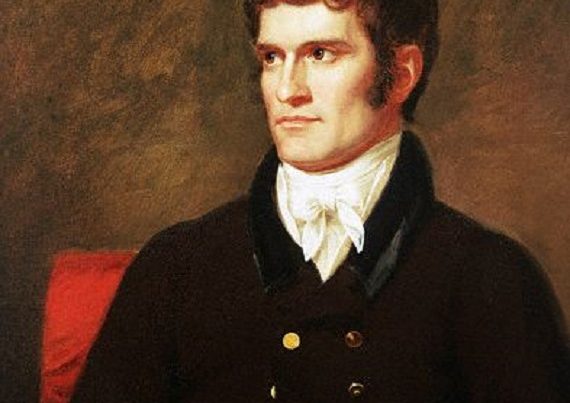The events in Charlottesville, Virginia that transpired this past weekend (11 Aug to 13 Aug) were the product of very misguided and miseducated adherents of the Nazi ideology and white supremacism who sought to voice their disapproval of the proposed removal of a statue to Confederate General Robert E. Lee. It is almost rote to assume that what Lee, as Commander of the Confederate Armed Forces and Leader of the Army of Northern Virginia, fought to defend and what was loosed on the world by way of Germany in the 1930s and 1940s were one in the same. While in the South, blacks were held as chattel property, in Germany, Jews were treated as vermin to be exterminated. But once the comic book version of history is swept aside, and the truly historically curious dig deeper, it becomes plainly clear that what General Lee–and for that matter Generals Thomas J. Jackson or J.E.B Stuart–were fighting for was something that the Nazis of Adolf Hitler’s Germany would have found foreign and threats to their power.
During the spring of 1861 newly inaugurated president, Abraham Lincoln, offered Robert E. Lee command of the Union Army. Lee’s response was a reflection of what he felt to be the honorable response: he would not draw his sword against his native state of Virginia. Lee’s response was not one to uphold human bondage, although that would have been the outcome had the Confederacy succeeded. Rather Lee’s actions were the actions of a man defending his home, his people, and his honor. These are all things that would have been foreign to the highest ranks of the Nazi Party and seem to be missing from those who would plow a modern Dodge Charger into a crowd of people.
If these Nazis and white supremacists in Charlottesville were mistaken in attempting to attach their stench to General Lee, who from the Civil War might they be more in harmony with?
Adolf Hitler‘s thick political biography, Mein Kampf, gives a glimpse of where he might have come down in the great mid-century struggle between the states. “Since for us the state as such is only a form, but the essential is its content, the nation, the people, it is clear that everything else must be subordinated to its sovereign interests. In particular we cannot grant to any individual state within the nation and the state representing it state sovereignty and sovereignty in point of political power. [I]ndividual federated states…must cease and will some day cease…. National Socialism as a matter of principle must lay claim to the right to force its principles on the whole German nation without consideration of previous federated state boundaries.” Hitler’s words are not a reflection of what the South at the time of their secession from the Union would have identified with. It should certainly go without saying that Lee’s decision to defend his “native state” of Virginia would have been at odds with the sentiment of ending “individual federated states.” Centralizing authority into a big, powerful national government was the product of President Abraham Lincoln’s desire to “preserve the Union.”
But Hitler sought inspiration from more than just Lincoln. He looked to other great paragons of the Union cause. Ideas of “final solutions” and ghettoization of the Jews could have just as easily been inspired by Union General William T. Sherman’s exclamation of having a “final solution to the Indian problem.” And to be sure the ghettos of Warsaw could have easily been mistaken for the reservation of Pine Ridge, the site of the Wounded Knee massacre.
Robert E. Lee’s views of humanity do not indicate that he could have been a man willing to condone a “final solution” on any race of people, be they black, Indian, or Jew. Lee’s duty was to ensure a better outcome for blacks. Although reflecting the ugliness of the time, Lee felt “the blacks are immeasurably better off here than in Africa, morally, socially & physically. The painful discipline they are undergoing, is necessary for their instruction as a race, & I hope will prepare & lead them to better things. How long their subjugation may be necessary is known & ordered by a wise Merciful Providence.” (1856) As hard as it might be to get past the rawness of those words, there is no denying that the goal is to see a people risen out of subjugation and allowed to reach the great potential destined them by God.
Lee was, first and foremost, a man of honor, but he was much more than the stoic “Marble Man” of lore. He had deep notions of freedom and liberty that reflected the Spirit of ’76. After the war, in correspondents with the famed British historian Lord Acton, Lee lamented what was to befall the New Republic after the dissolution of the original union. Acton expressed his disappointment in the failure of States’ Rights as a check against the absolutism of a centralized government and of secession as democracy’s redemption. To this Lee replied:
While I have considered the preservation of the constitutional power of the General Government to be the foundation of our peace and safety at home and abroad, I yet believe that the maintenance of the rights and authority reserved to the states and to the people, not only are essential to the adjustment and balance of the general system, but the safeguard to the continuance of a free government. I consider it as the chief source of stability to our political system, whereas the consolidation of the states into one vast republic, sure to be aggressive abroad and despotic at home, will be the certain precursor of that ruin which has overwhelmed all those that have preceded it. (December 15, 1866)
Those people professing to be supporters of Nazi ideology and white supremacism would not have found a friend in Robert E. Lee. And the carnage they wreaked in his name would have been an insult to his honor.







